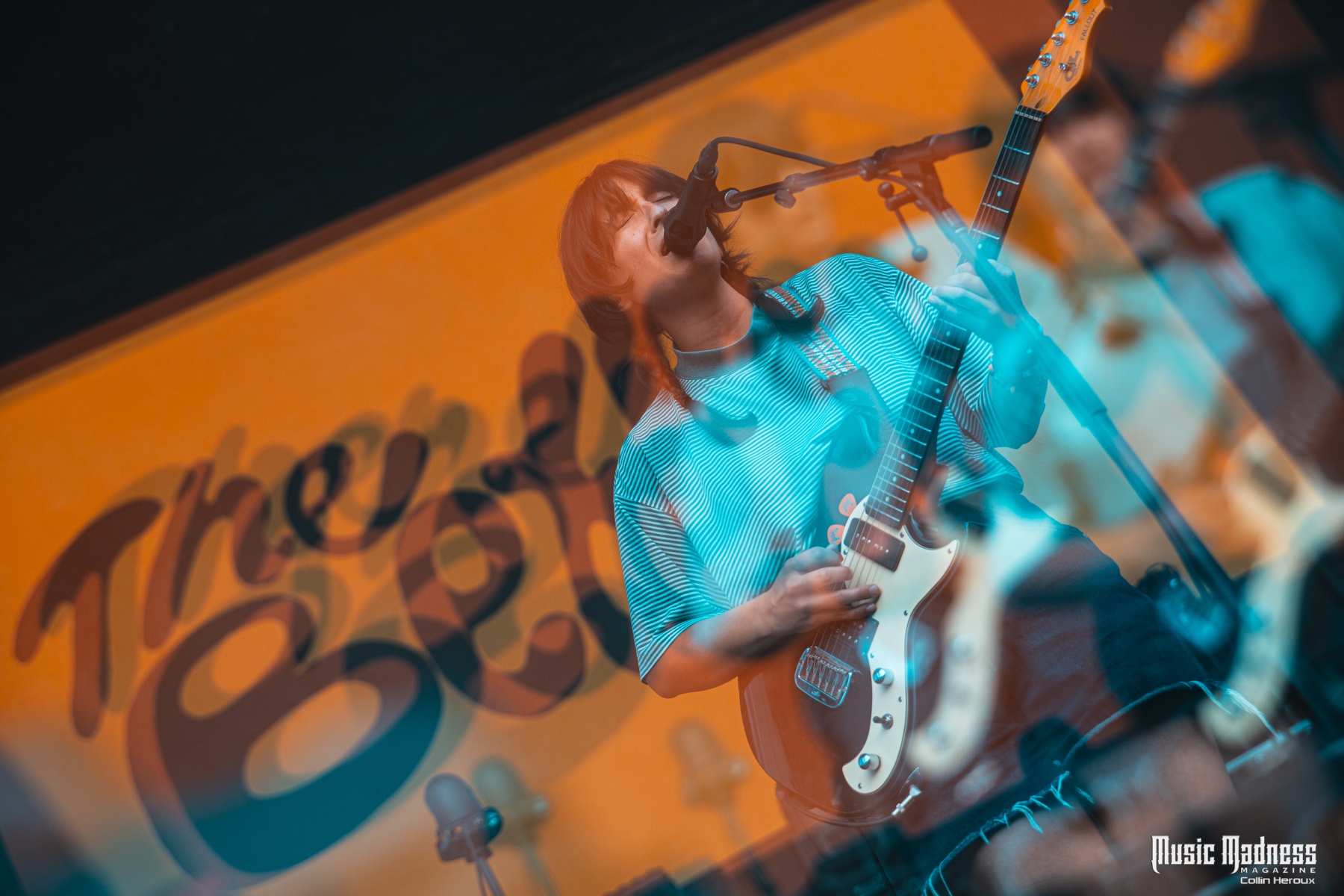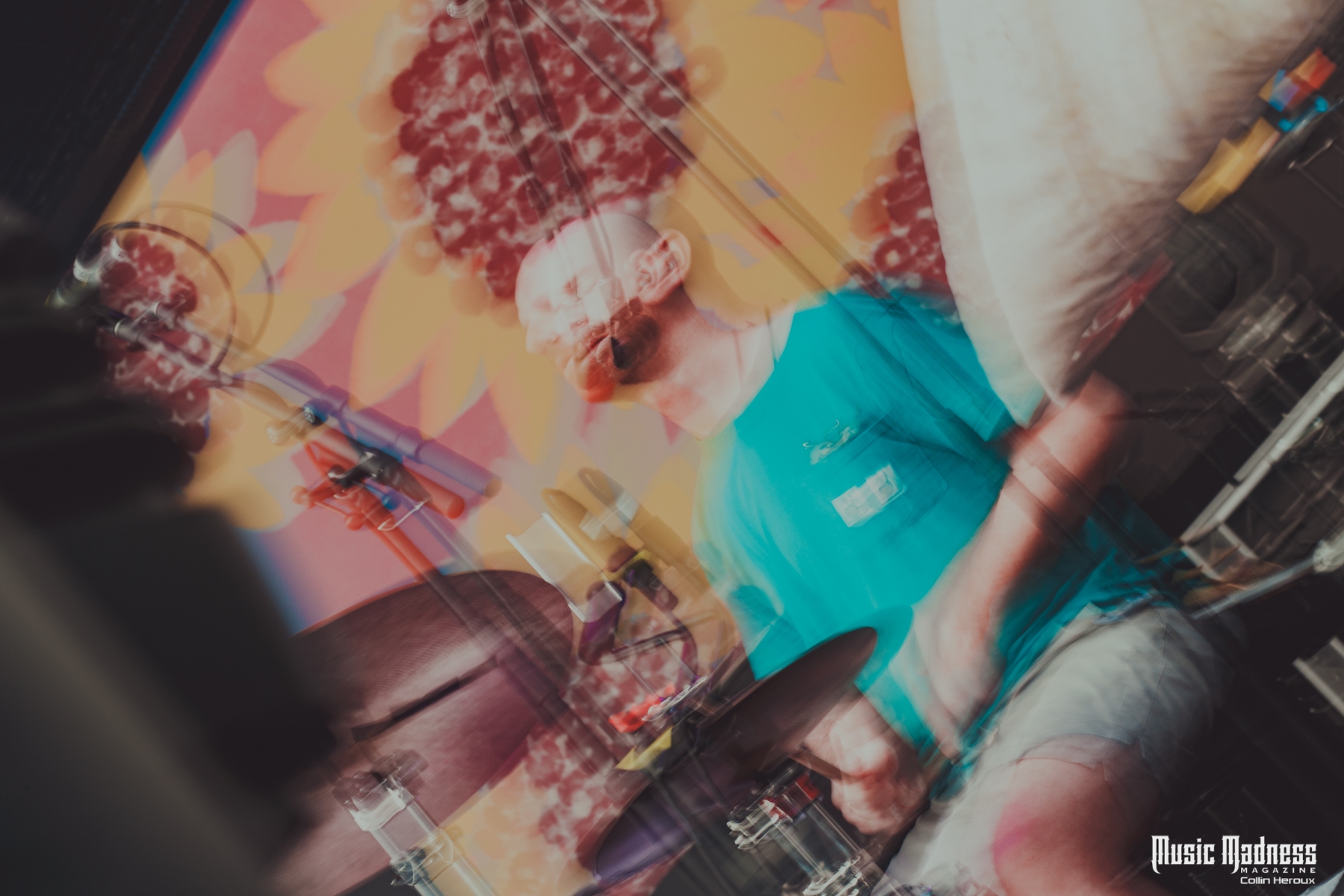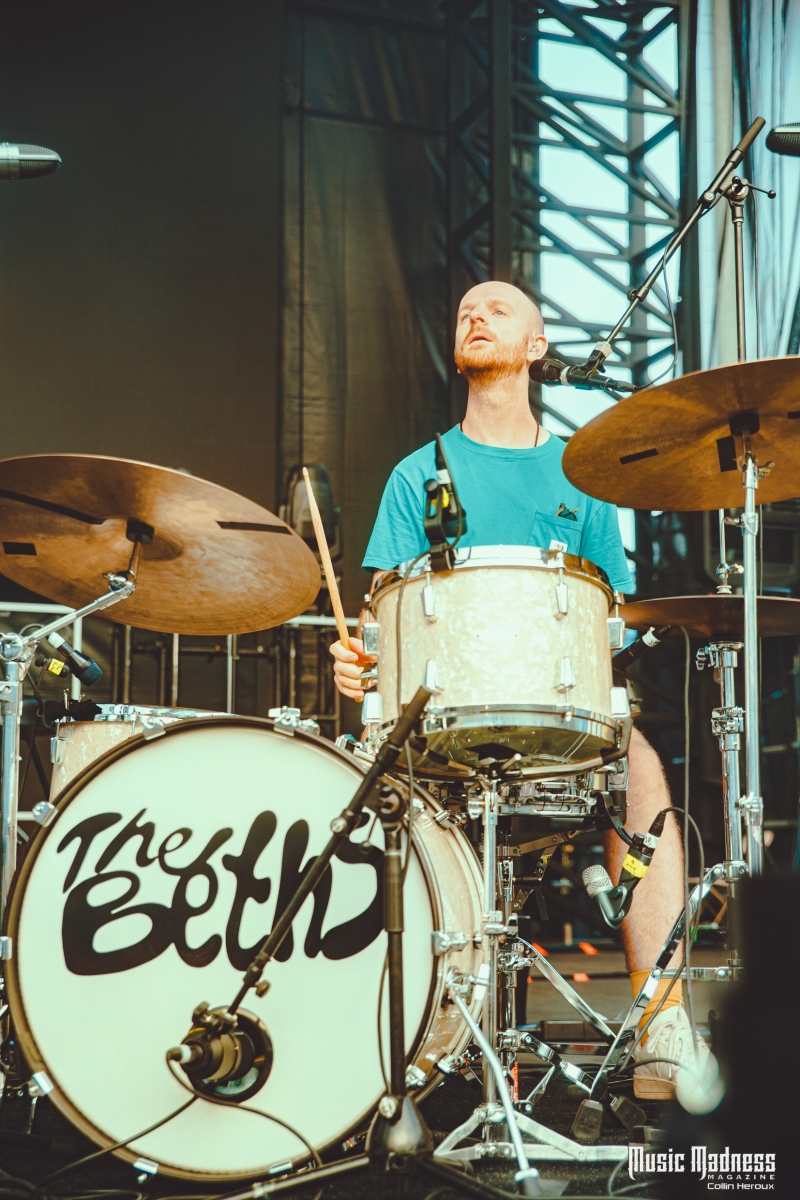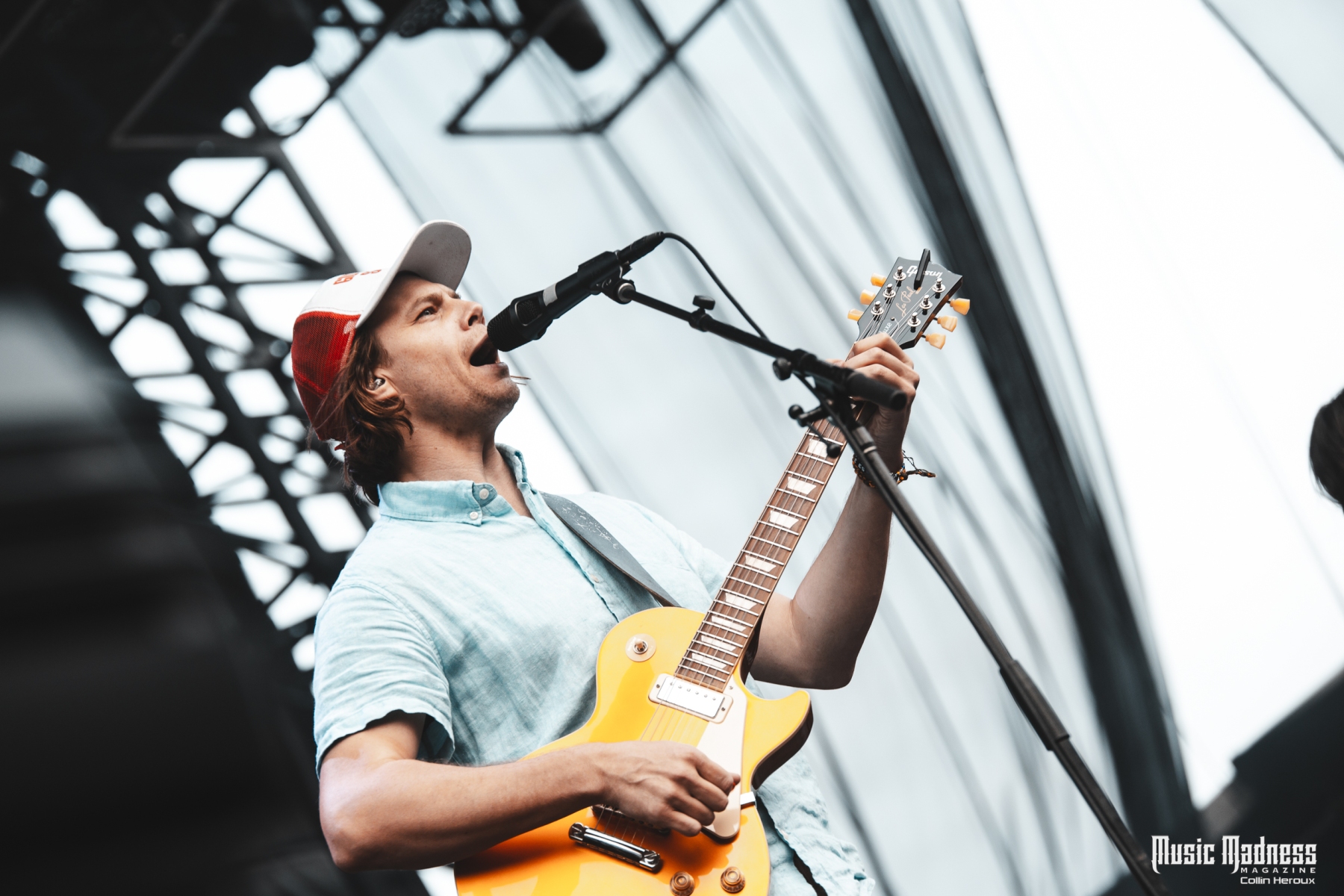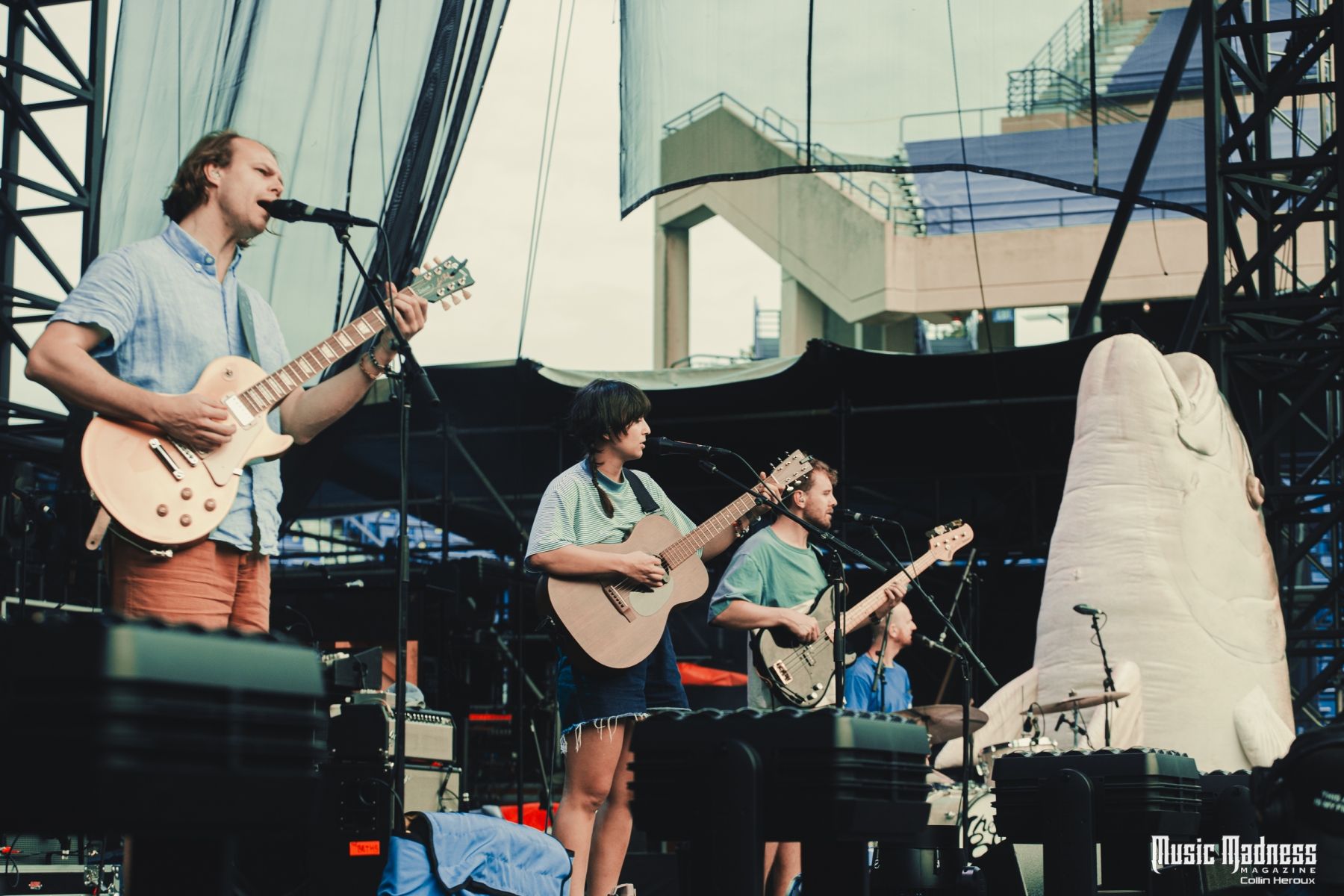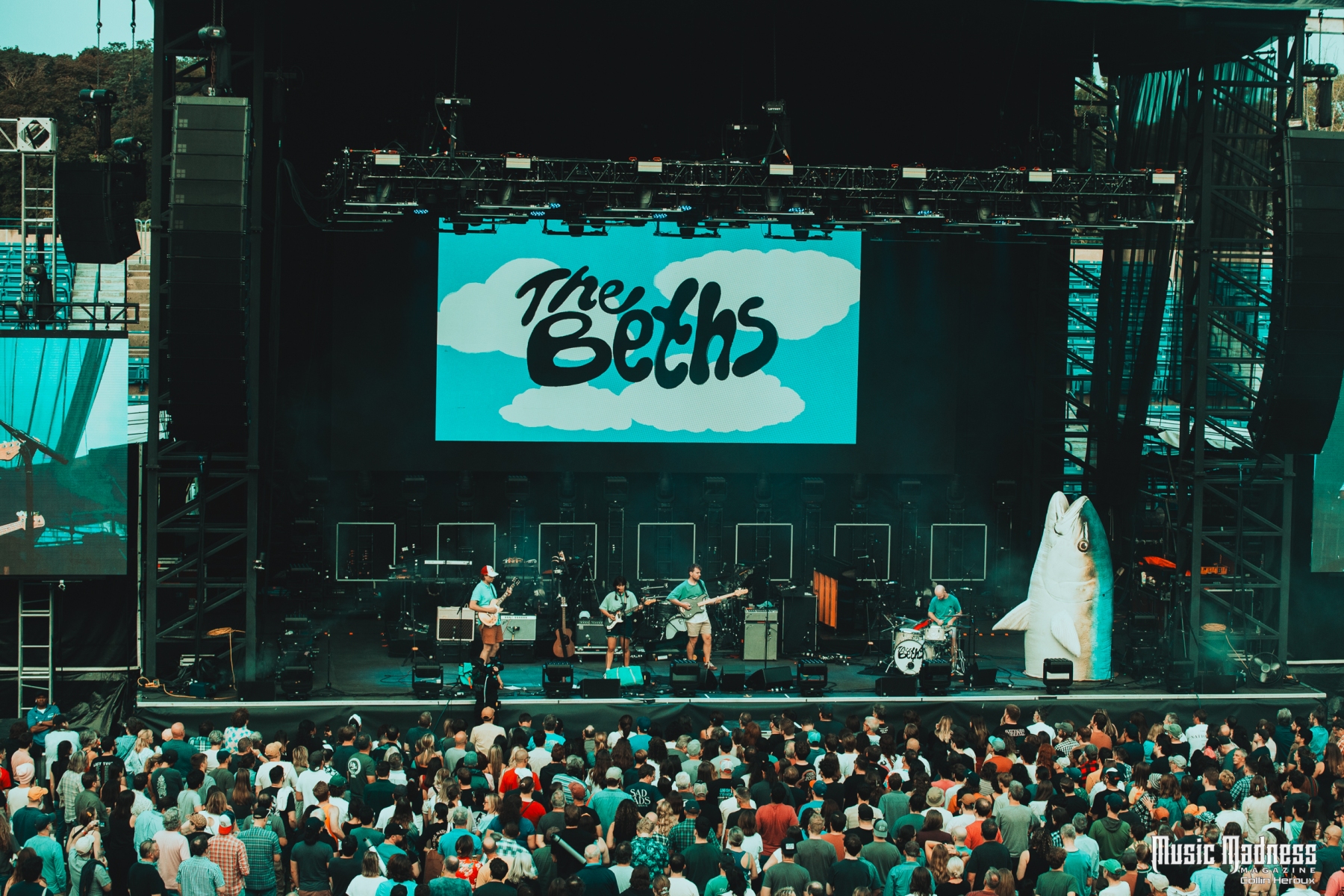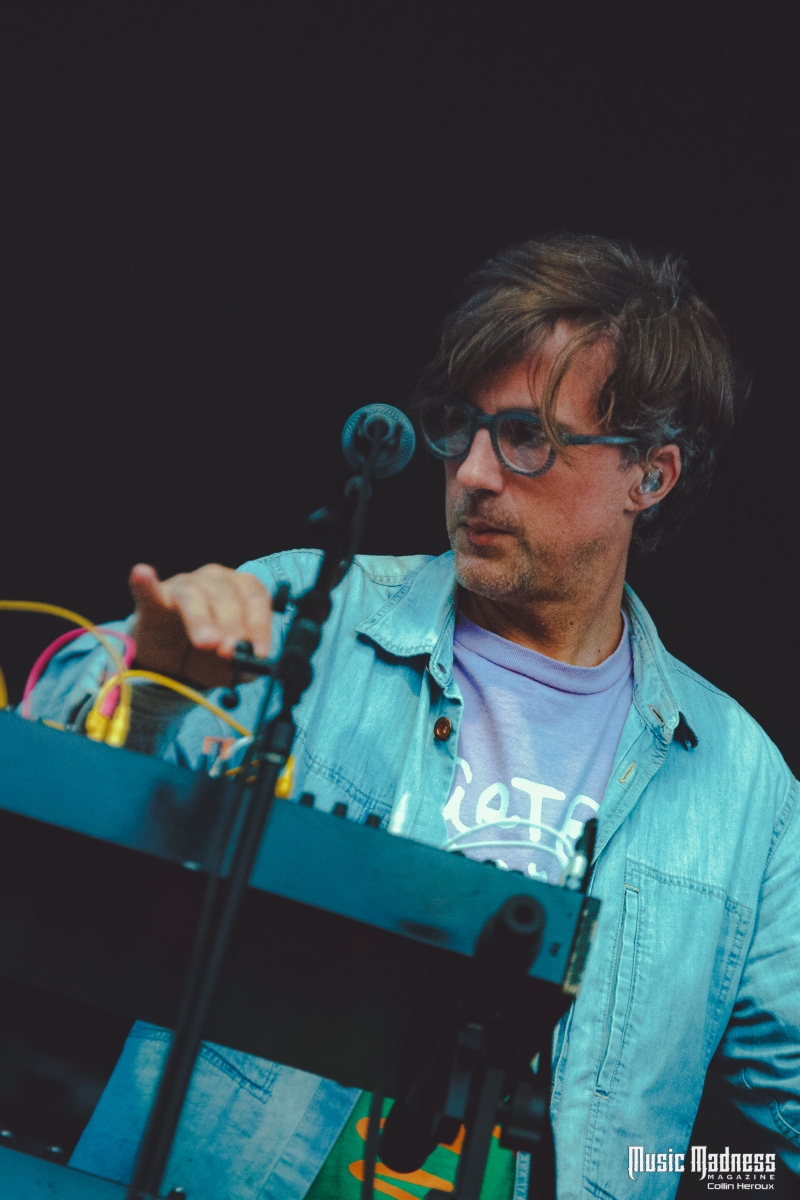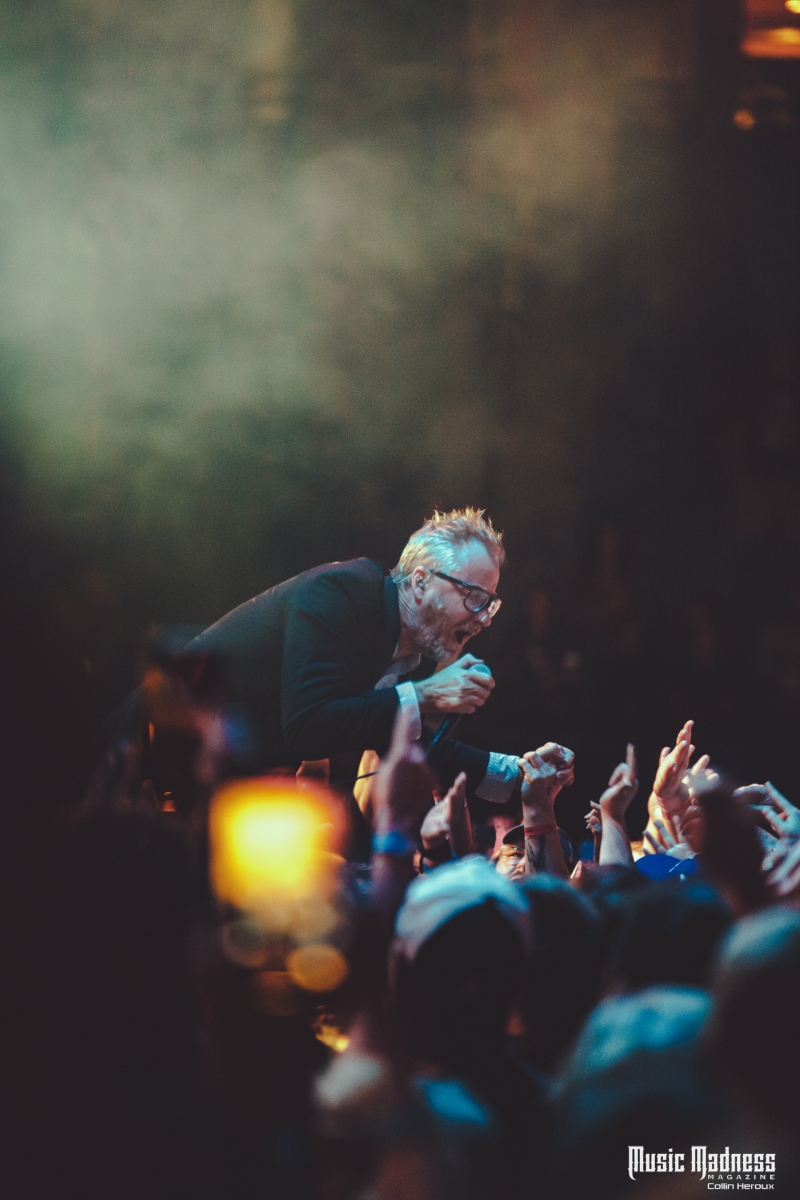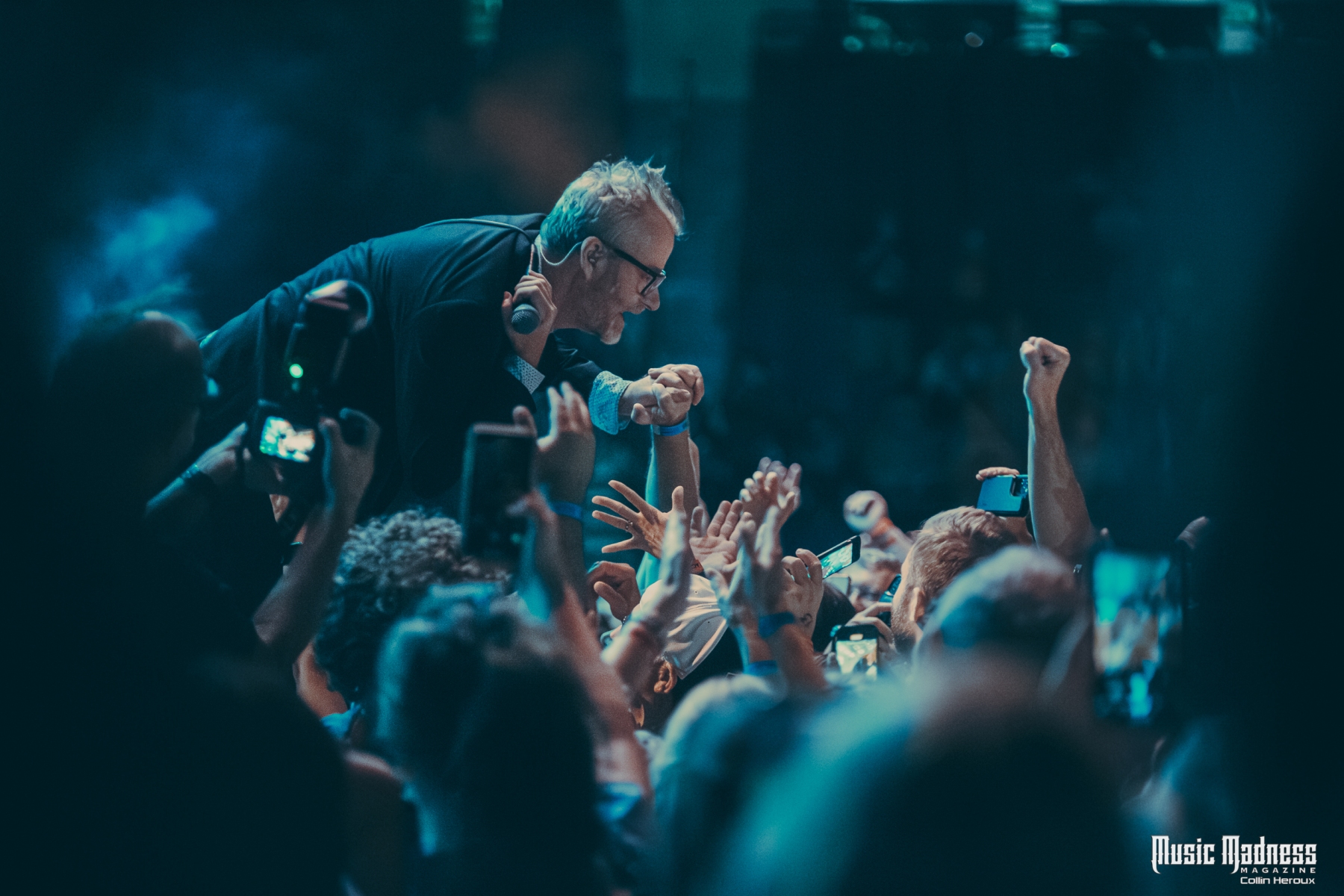
From the turn of the millennium, Cincinnati natives The National have soundtracked the scene of modern guitar music in general, as well as a special kind of sadness that underpins growing up in these strange, unprecedented environs. Rising from a country-tinged debut in 1999 and coming of age in the mid-aughts around the time of Alligator and Boxer (with an under-cited treasure in the form of Sad Songs for Dirty Lovers in between), the band now drops features each record with the likes of Taylor Swift and Phoebe Bridgers, as well as having founded their own recording studio circa Sleep Well Beast that has transformed them into a quiet powerhouse of music. The band have been around so long that they have distinct eras – on Sad Songs and Alligator one could hear singer Matt Berninger scream with unparalleled ferocity, but for Boxer and their breakout success High Violet that aspect mellowed a bit while their songwriting became more intricate still. The National are also a success story of a band of brothers, a testament to the special kind of telepathy that exists between siblings: the rhythm section is comprised of Bryan and Scott Devendorf; while guitar, piano, and chief compositional duties are handled by the duo of Aaron and Bryce Dessner, whose efforts with the band have led them to a host of other projects through the years.
For their performance on a gorgeous evening at the Westville Music Bowl, the band have teamed with The Beths – a New Zealand outfit who themselves epitomize the excellence of their chosen medium. Fresh off a performance at the legendary Newport Folk Festival, The Beths are the pinnacle of what an indie rock band can be – if I could only pick one pure “indie” band to continue to make music in all the world, it would be The Beths. Singer and guitarist Elizabeth Stokes expertly crafts such heartbreaking lyrics paired with direct-but-still-detailed musicianship; there’s really no substitute for this level of mastery. While fellow amazing musicians from the region such as Courtney Barnett often dip into alternative influences like folk or grunge, The Beths embody the platonic form of straight-up independent rock, making them true experts in their very-much-alive field.
The National’s fascinating evolution has brought them to this tour, marking the release of their ninth album, First Two Pages of Frankenstein. That title remains unexplained on the record, and its esoteric nature exemplifies a talent that The National, especially Berninger as a lyricist, has perfected over the years: the paradoxical nature of evoking painfully-relatable feelings from scenes that are clearly so tied to either he or his invented narrators. Their identity as a band has only ever evolved, even if Matt has left the screaming long in the past. After the band takes the stage, as they always do, with a live feed from backstage watching them, they open with ‘Once Upon a Poolside’, a song that captures the rending forces of having to walk on a stage and embody one’s most depressing moments night after night. The band’s success has always been something of a paradox, with Berninger mining the depths of depression in front of many thousands per show, often singing pieces he wrote with his wife Carin Besser. Whatever level of realism, past or present, that nightly journey takes its toll.
The second song of the evening, ‘Eucalyptus’, is among the most painfully-identifiable songs they’ve ever written. It lingers in such a heartbreaking moment, two lovers divvying up possessions as they part; it’s impossible to not feel one’s own soul shouting the lyrics from inside… Or perhaps it is if you’ve been lucky. Listening to songs like ‘New Order T-Shirt’, one notices they’re so laser-specific that they nearly become prose, not necessarily even following the exact cadence of the music at points. But for all their specificity, the feeling is understood: even despite all that occurred, there are memories we all carry “like drugs in my pocket”, afraid to reveal them to anyone else but equally terrified to cast them aside. Does the line about “a Kentucky aquarium, talking to a shark” have universal resonance? Of course not. But we all have similarly “weird memories” of people we no longer know, and that’s where the dirk hits you in the small of your back and bends you over in nostalgic desperation.
Berninger hits a silver vape between songs, and soon the band is on to another highlight of their latest album, ‘Tropic Morning News’. Frankenstein took me a bit to warm up to, in truth, but after repeated listens this easily ranks among the best songs the band has made. Musically influenced by bands like The War on Drugs, it comes from the point-of-view of someone who simply wasn’t ready for the seriousness of the argument they found themselves in, totally off-kilter but fighting for their emotional life. “I didn’t have my face on yet,” Berninger pleads, shielding the right side of his visage with his free hand while the other holds the mic to his mouth. Its lyrics harken back to ‘Baby, We’ll Be Fine’: the narrator still in search of something “perfect” to say. They also revisit the musically-experimental phase of Trouble Will Find Me in the unconventional time signature of ‘I Should Live in Salt’, then circle back to one of their most-loved songs in ‘Bloodbuzz Ohio’, its talk of student debt and alienation from home making it one of the first pieces of music in its generation to effectively encapsulate the phenomenon of growing up in this era. It’s one of many times the Dessner brothers approach the edge of the stage together, interlocked guitar patterns that structure the best of the band’s music leading them to lift their instruments above their heads to cheers from the crowd.
In introducing ‘Green Gloves’, Berninger confesses, “Sometimes I think it’s our creepiest song,” adding “this is getting awkward” as the rest of the band tunes in light of the admission. It’s a piece that deals with alienation of a different kind – growing away from one’s friends. But in its idiosyncratic language, there’s true caring, a desire from Berninger and his narrator to understand the people he’s drifting away from. The live version of the Boxer song is one of many that benefits from the addition of brass from longtime touring companions Kyle Reznick and Ben Lanz, who throughout the night switch between trumpet and trombone, respectively, and various other roles. The band also breaks out a rare performance of ‘Cherry Tree’, joined by local and friend Nick Lloyd. Aaron says: “There’s a long history of people helping The National and kind of somehow helping us figure out how to be good at this,” and Lloyd, Bryce’s former schoolmate, and the band’s one-time recording engineer, joins them on piano for the song. “All the good piano-playing on the first record? That’s Nick,” jokes Aaron. While nominally only an EP, Cherry Tree contains some of the band’s best work, an evolutionary artifact from the period between Sad Songs and Boxer, and the look back with Lloyd – whom Berninger says has “that cocaine cowboy hair”, is not the sole time they divert to the pivotal release on the night.
The band have always been fond of testing out new material live before release, and while this night only betrays the workshopping of one new work, it’s a treat. Dubbed ‘Space Invader’, it’s subtitled (according to fans, at least) ‘Threaded Gold’, the dueling titles likely a result of the typical exchange of the Dessners’ codename titles and Berninger’s lyrical additions. It’s quite literally a series of “what-ifs”, and no matter what shape it may take as it reaches its final form, an album or even multiple albums from now, it’s the type of thing that we, as listeners, have come to expect from the band, in the best way. It’s actually a happy song, but Berninger frets over the small margins by which that happiness arrived, thinking of how many things needed to go right and how many opportunities it had to go wrong, worrying he was “too romantic/sad and frantic”. It’s a song that’s all too familiar for the anxious – even when happy, we think about how fragile that peace is, like a thread of gold through the eye of a needle. Someone in the audience produces balloons from somewhere during ‘Day I Die’, and Berninger takes one and cradles it under his arm until the song’s bridge until it falls somewhere unclear. Another crowd favorite is the piano-dominated ‘Pink Rabbits’, house cameras panning over the audience during its singalong chorus, and Berninger does his trademark roaming through the crowd on stage left during the final song of the main set, ‘Fake Empire’. Before that one, he muses, “Indictment day…” referring to a certain former President, although considering how many times that man has faced charges recently, and not having looked at the news considering I spent the afternoon driving, this is actually news to me – but the moment is all the more enjoyable because of it.
The band’s return to the stage for the encore brings four further songs, beginning with non-album single ‘Weird Goodbyes’ and then segueing into the fierce duo of ‘Mr. November’ and ‘Terrible Love’. At this point in the evening, fans know Berninger is liable to crawl over the barrier at any point, and during the latter he does so once again, this time stage-right, his microphone cord managed by staff and hoisted above everyone’s heads as he wanders the crowd, stopping at the edge of the standing-area floor space and singing to those in the very front of the seated section. For the literal dozen years I’ve been seeing The National live, starting in 2011 (when even then the amazing Yo La Tengo was opening for them), it has always been clear that Berninger thrives off this literal face-to-face interaction with the audience. This only holds more true now in light of songs like ‘Once Upon a Poolside’ – by this point in the night the neuroses are gone, and he’s immersed himself fully in the crowd. Fraught as the position of the focal point of so much emotion is, Berninger knows where his public is – and they are, quite literally, all around him.
As beautifully fitting as that may seem, after ‘Terrible Love’ there is one more song yet. ‘About Today’ – from Cherry Tree – remains one of the most vaunted songs in the band’s catalog. There’s a reason Bartees Strange elected to cover it on his debut release – it’s among the most meaningful pieces of art the band has ever produced. While it’s quiet, somber, and restrained (at least by the standards of ‘Terrible Love’) air seems an odd note on which to end… honestly, that’s what we came here for. We came for the feeling of sadness, the imagery of turning to the one you love and asking: “How close am I to losing you?” For some it’s wish fulfillment, wondering what our lives might be had we received an honest answer to that question at some critical juncture – some hopeful they can avoid it, others ready to accept the eventuality. Berninger stays onstage for this one, in fact tucking under his arm a poster from fans, but it’s as meaningful as the moment prior where he wandered the astroturf tennis court with the arms of fans on his back as he moved past. No matter how quiet, how resolute, how private – The National, quite literally, has always had the fast track to the heart of the matter.
Photos and Review by Collin Heroux


